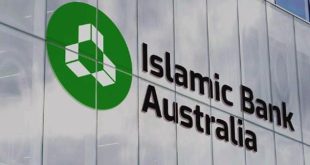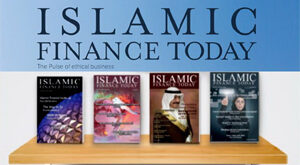 The dominant vision of nearly all people engaged in Islamic finance in modern times , is the maximization of profits through processes which are Sharia compliant The thinking behind this vision is that the profit motive can be a very acceptable major driving force in any endeavor so long as the modalities of such profit maximization initiatives are packaged in a Sharia compliant casing .
The dominant vision of nearly all people engaged in Islamic finance in modern times , is the maximization of profits through processes which are Sharia compliant The thinking behind this vision is that the profit motive can be a very acceptable major driving force in any endeavor so long as the modalities of such profit maximization initiatives are packaged in a Sharia compliant casing .Is this vision good in Islam ? Is there a higher principle that a Muslim should address because the profit maximization approach gives rise to an inherent conflict of interest between parties to any commercial contract . As Muslims we extol the virtues of the higher Ideals that Islam inculcates on believers . We recognize that Islam imposes on all Muslims the obligation to embrace a holistic approach to life with the ‘Ideals’ prescribed in the scriptures overarching every aspect of our lives . In life however there is always the clash between ‘Ideals’ and ‘Interests’ . What we see in real life is this conflict . Each party now in pursuit of maximizing gain , pegs down firm financial boundaries demarcating what each perceives as inviolable financial interest which they believe ought to be strongly defended .
In this kind of a mind set , each party would want to concede to the other , only the minimum accommodation that is necessary in order to obtain the maximum possible financial benefits from the other . The end result of the game plan , is not a finance or business contract that is moderated by a dominant vision of justice and fair play , but a brutally bargained agreement where the more dominant party ends up extracting the maximum of his interests at the expense of the other .
Take for instance a typical Banker / client encounter at the time of negotiating a facility . Most customers at this stage of negotiations would really aim to obtain an unsecured facility from the bank . and under pressure from the bank would concede somewhat reluctantly only the minimum security possible although he may have the capacity to be generous in this regard .There is thus an open clash of interests and the party with the strongest clout succeeds in extracting the best deal possible .
Is there an Islamic principle on matters concerning debt and security ?
Do Muslims have a reference point on this matter ?.Is there a need to explore the very important ethical principle of “Form” and “Substance” in our lives including our finance and business dealings ? .Is compliance with “Form” alone sufficient in Islam or is achieving the “substance” ( the Ideals ) more important than Complying with ritualized “Form”.
Are we guilty en-masse of being neglectful of the “Substance” ( Niyah ) of every thing we do ?.
The Quran and the Apostle of Allah ( PBUH ) did not leave us empty handed on this issue. The Quran and the authentic Hadiths contain many unequivocal guidelines on how we as Muslims must conduct our lives on matters concerning debt and security. The footprints of the Apostle of Allah (PBUH) have many specific references impinging on this important issue .
The overall vision of how a Muslim must manage his finance and business dealings ,is abundantly demonstrated in the manner in which the Apostle of Allah conducted his life . I would like to discuss just one authentic Hadith from Sahih Al Bukhari which encapsulates his vision .This Hadith is reported in Vol. 3 in the Book of Sales in Hadith No.282.
This is a Hadith of profound commercial significance .The 17 words in this landmark Hadith enshrine several important commercial principles .
I quote the Hadith ,
“Narrated Aisha ‘ The Prophet purchased food grains from a Jew on credit and mortgaged his iron armour to him’ “ .
This same Hadith is reconfirmed in Hadith No. 283 which is reported as follows;
“ Narrated Qatada , Anas went to the prophet with Barley bread with some dissolved fat on it . He had mortgaged his armour to a Jew in Madina and took from him Barley for his family , and Anas heard the prophet saying ‘The household of Muhammed has not even a single of wheat or food grains for the evening meals while he had nine wives to look after ‘ “ .
The first landmark principle that emerges from this Hadith is that it is permissible for a Muslim to transact business with non Muslims and to enter into Sharia compliant contracts , agreements , undertakings etc . with them .There are no impediments or restrictions of any kind on such dealings with non Muslims . Let us put this event in its historical context. This transaction of the Apostle of Allah (PBUH) took place in Madina at a time when Islam was well established in Madina with many Muslims setting up businesses in the city and its surrounding areas .There was peace and law and order in the emerging nation state , which encouraged many people to take to trading as a vocation .
Being the Capital of an Islamic state , there were naturally many Muslim traders in Madina . The Apostle of Allah (PBUH) therefore had a wide choice of Muslim traders
From whom he could have bought grain . But obviously for reasons of convenience he went to a shop owned by a Jew to procure grain for his food . Having bought the grain on credit , the Apostle of Allah (PBUH) ensured that the creditor ( The Jewish merchant ) had peace of mind , and this he provided it by giving security for the debt extended to him. The Apostle of Allah (PBUH) clearly demonstrated that in business relationships , barriers based on religious beliefs have absolutely no relevance . His Niyah transcended religious differences .The principle he set out clearly to Muslims is that when Muslims deal with mankind , the legal rights of the other party and our legal obligations towards them must be respected whatever the beliefs of the other party may be .To state in simple terms , from an Islamic perspective , non Muslims are not children of a lesser god and Muslims do not enjoy superior rights over a non Muslim in the enforcement of rights and obligations in business or other agreements.
The next principle emerging from this Hadith is that buying and selling on credit is permissible in Sharia. There is no merit or special preference for business transactions that are settled on the basis of spot settlement . Any instrument facilitating sale on credit terms is well accepted in Sharia so long as such arrangements do not violate in any way any Islamic rule . Financial instruments such as Credit Cards ,Debit Cards , Letters of Credit, Hire purchase , Leasing , Murabaha , Salam etc are very acceptable business arrangements in Sharia .
Having said that it is important to remember that several Prophetic traditions also emphasize the need to exercise caution when getting into debt because as humans we are expected to have fear of Debt and its inherent dangers . This principle is well illustrated in the following Hadith
Reported in Bukhari Vol 3 , Book of loans , Hadith number 582.
Narrated Aisha ‘Allahs Apostle used to invoke Allah in the prayer saying “O Allah ,
I seek refuge from you from all sins and from being in debt “ , some one said “ O Apostle of Allah , I see you very often seek refuge from Allah from being in debt” .He replied “ if a person is in debt , he tells lies when he speaks , and breaks his promise when he promises “
This Hadith establishes the principle that although debt is permissible in Islam , it must arise out of necessity and not used as a casual mechanism to cater to any human desire .
Another very significant principle emerging from this Hadith is that the practice of taking security for a debt is not only allowed in Sharia but is perhaps encouraged .If we look at this event reported in the Hadith from a historical perspective , the serious intentions of the Apostle of Allah (PBUH ) when he bought the grain on credit , emerge very clearly. This event took place in Madina at a time when Islam was well established and the Apostle of Allah ( PBUH ) was in a preeminent position in Arabian Society .He was widely acknowledged as the prophet of Allah by thousands of people , He was the unanimously accepted leader of a powerful Islamic state , he was the Commander in chief of the Muslim armed forces , the head of the Islamic treasury , was widely respected for his truthfulness, sense of justice and fair play and was bestowed with the honour by the people of Arabia of being the best of human beings . It is therefore very unlikely that the Jewish merchant would have asked for security from the Apostle of Allah ( PBUH ) on a small credit sale . The most likely interpretation is that The Apostle of Allah (PBUH ) voluntarily gave his iron armour as security for the debt . He did so because according to his standard , a debt is a very onerous and serious obligation and arrangements for its settlement must be made at the very moment the debt is incurred
This position is confirmed in several Hadiths similar to the one reported in Bukhari Vol 3 , Book of Hawala, Hadith number 495 .
I quote the Hadith ;
Narrated Abu Huraira ‘ when ever a dead man in debt was brought to Allahs Apostle , he would ask “ has he left anything to repay his debt ? “ If he was informed that he had left something to repay his debts , he would offer his funeral prayer , otherwise he would tell the Muslims to offer their friends funeral prayer ‘
The principle emerging from these Hadiths is that all debts must be secured .Every creditor has a right to demand security and every debtor has the obligation to make it available to the creditor . Providing security in the light of these Hadiths , is therefore not an option but clearly a mandatory obligation on the part of every debtor.
A further principle emerging from this Hadith is that a Muslim or non Muslim selling on credit or providing finance to procure even basic essentials of life such as food , clothing, shelter etc can legitimately demand security for such debts . Islamically security can even be demanded for debts of whatever size , big or miniscule , size has no relevance . Security is given to guarantee a debt obligation and the quantum or the nature of the debt does not change the gravity or complexion of that obligation. This is clearly exemplified in the manner in which the Apostle of Allah (PBUH ) viewed the debt he was creating when purchased grain on credit .
As reported in Hadith number 283
‘—- He had mortgaged his Armour to a Jew in Madina and took from him Barley for his family , and Anas heard the prophet saying “The household of Muhammed has not even a single of wheat or food grains for the evening meals while he has nine wives to look after “
It is clear that on that evening when the Apostle of Allah ( PBUH ) purchased the grain on credit , there was an element of desperation in his mind because there was absolutely no food available in his house , for the family’s evening meal . Nevertheless , even on that small credit purchase , he gave the Jewish merchant plentiful security by mortgaging his Iron Armour
It is clear from the foregoing that being miserly in giving security for a debt is not the standard that the Apostle of Allah ( PBUH ) bequeathed to Muslims . The Apostle of Allah ( PBUH ) amply demonstrated in his business dealings that the creditor has a paramount right to recover his debt and to secure such debts . The debtor must therefore spontaneously respond , by providing security which will enable the creditor to recover the debt in full regardless of the death or any adverse financial condition that may befall the debtor .
The Apostle of Allah ( PBUH ) has very unequivocally given Muslims an exemplary standard to follow on matters relating to debt and security. Let us collectively embrace this very just very fair and very sublime guiding principle .
 Sri lanka Muslims Web Portal Diversity and Inclusiveness
Sri lanka Muslims Web Portal Diversity and Inclusiveness




Masha Allah, a thought provoking article. This emphasizes the importance of clearing the debt or leave sufficient fund or the heirs takes the responsibility of repayment. May Allah guide and protect all of us to lead debt free life.Insha Allah.
Hope Ismai Marikar will continue to contribute more articles Insha Allah.